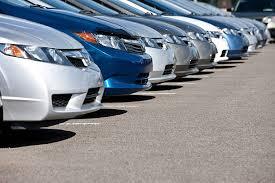
When buying a new car in Pakistan, prioritizing safety features like airbags and considering safety ratings can significantly enhance your protection and peace of mind on the road. As the automotive industry evolves, advancements in safety technology and rigorous testing standards play a crucial role in ensuring vehicle occupants' safety. Here’s why airbags and safety ratings are paramount considerations for new car buyers in Pakistan:
1. Role of Airbags in Vehicle Safety
Airbags are pivotal components of modern vehicle safety systems, designed to mitigate the impact of collisions and reduce the severity of injuries to occupants. Here’s why they are essential:
Crash Protection: In the event of a collision, airbags deploy rapidly to cushion occupants from hitting hard surfaces, such as the steering wheel, dashboard, or side panels.
Multi-Point Protection: Different types of airbags, including front airbags, side airbags, and curtain airbags, provide comprehensive protection in various crash scenarios.
Supplemental Restraint System (SRS): Airbags work in conjunction with seat belts to maximize safety by restraining occupants and minimizing movement during a crash.
2. Safety Ratings and Their Importance
NCAP Ratings: National Consumer Assessment Program (NCAP) safety ratings evaluate vehicles based on crash tests and safety equipment effectiveness.
IIHS Ratings: Insurance Institute for Highway Safety (IIHS) ratings assess crashworthiness, crash avoidance, and mitigation capabilities of vehicles.
Criteria Evaluated: Safety ratings consider factors such as frontal crash, side crash, rollover resistance, and the effectiveness of safety features like airbags, seat belts, and electronic stability control (ESC).
3. Regulatory Standards and Compliance
Local Regulations: Compliance with Pakistani regulatory standards ensures that vehicles meet minimum safety requirements, including airbag deployment standards and crash test performance.
Global Standards: Many automakers adhere to international safety standards, exceeding local requirements to enhance vehicle safety for global markets.
4. Impact on Occupant Safety
Injury Reduction: Airbags significantly reduce the risk of serious head, chest, and limb injuries during frontal and side impact collisions.
Enhanced Protection: Vehicles with high safety ratings and advanced airbag systems provide occupants with enhanced protection against various crash scenarios.
5. Technological Advancements
Advanced Driver Assistance Systems (ADAS): Integrated safety technologies such as forward collision warning, automatic emergency braking, and lane departure warning systems complement airbags to prevent accidents and mitigate collision severity.
Preventive Measures: ADAS technologies help drivers avoid potential hazards and improve situational awareness on the road, reducing the likelihood of accidents.
6. Consumer Awareness and Education
Informed Decision Making: Educated consumers prioritize safety features and ratings when selecting new cars, understanding their impact on overall vehicle safety.
Safety Advocacy: Advocacy groups and safety organizations promote awareness of airbag effectiveness and the importance of choosing vehicles with high safety ratings.
7. Future Considerations
Continuous Improvement: Automakers continually innovate to enhance airbag technology and vehicle safety systems, integrating new materials and predictive technologies to improve crashworthiness.
Conclusion
In Pakistan, where road safety is a critical concern, choosing a new car equipped with adequate airbags and high safety ratings is paramount. These features not only protect occupants in the event of accidents but also reflect manufacturers' commitment to vehicle safety. By prioritizing airbags, understanding safety ratings, and considering advanced safety technologies, consumers can make informed decisions that prioritize their safety and that of their passengers. As the automotive industry progresses, advancements in safety technology will continue to play a pivotal role in reducing injuries and fatalities on the roads, making vehicle safety a cornerstone of new car purchases in Pakistan and worldwide.
You Might Like Also

How to Get the Best Value for Money on New Cars

Benefits of Pre-Purchase Car Inspections in Karachi

The Role of Extended Warranties in Selling Your Car

The Future of MG Car Prices in Pakistan’s Market
















